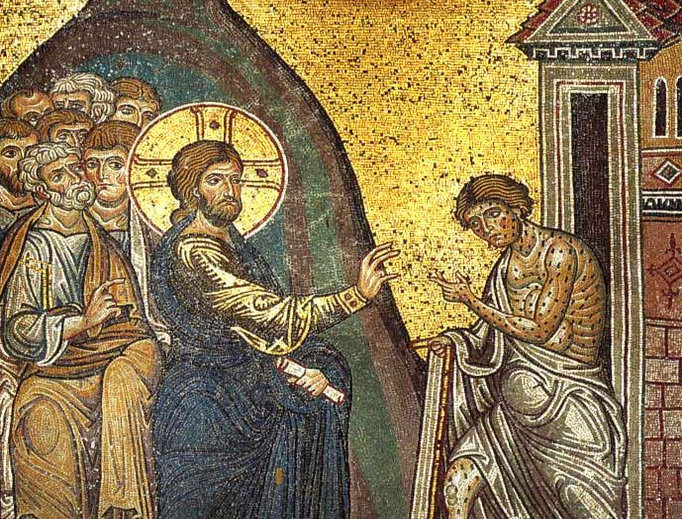Thank God, Even for Chains
User's Guide to Sunday, Oct. 9

Sunday, Oct. 9, is the 28th Sunday in Ordinary Time (Year C). Mass Readings: 2 Kings 5:14-17; Psalm 98:1-4; 2 Timothy 2:8-13; Luke 17:11-19
Today’s readings demonstrate two truths about gratitude. One is obvious, and the other one is not obvious at all.
The obvious one is nonetheless a truth we often forget: We have to be thankful for the gifts of God. The less obvious lesson is about the gifts God refuses us.
The Gospel tells the story of 10 lepers, whom Jesus meets on his relentless journey to Jerusalem. They call out, “Have pity on us!” and Jesus cures them in a very casual way by sending them to others: “Go show yourselves to the priests.” It is only on the way there that they realize they are cured.
One returns to say, “Thank you,” and Jesus praises him for it. Nine don’t, and Jesus makes his displeasure known.
Clearly, when God has given you something great, he expects gratitude in response. How much gratitude? Enough to change your life. In the first reading, Naaman, the foreign ruler, is cured of leprosy by Elisha, the man of God — and the depth of his gratitude is astounding. He abandons his former God and begins worshipping Elisha’s. This is why he asks for “two mule loads of earth,” so that he can build an altar on his own land to worship the God of Israel.
The lesson is clear. Has God blessed you with health? A job? A family? Then thank him — profusely.
But what if you asked for health and didn’t get it? What if you lost your job? What if you lost your family?
Then you are in the position of St. Paul in today’s second reading. His is a message borne of pain. “I am suffering, even to the point of chains, like a criminal,” he says.
The astounding thing is that he, too, is thankful. “This saying is trustworthy,” he says: “If we have died with him, we shall also live with him; if we persevere, we shall also reign with him.”
He realizes that his current suffering is simply another opportunity to get closer to God.
You see that in the other readings, too. Would the 10 men in the Gospel have been touched in a profoundly personal way by Jesus Christ if they hadn’t had leprosy? Probably not. Jesus passed by dozens of people who had no leprosy. It’s the same with Naaman. Absent his suffering, he never would have discovered God.
It is the broken who are most likely to meet God. And, since meeting God is the whole point of life, it is the broken, ironically, who have the most reason to be thankful.
Marian Father Michael Gaitley makes a special point of this in his book 33 Days to Merciful Love. He writes, “Mother Teresa of Calcutta has often written about the importance of accepting everything with a smile, with praise and thanksgiving,” and quotes Psalm 49, a favorite of St. Thérèse of Lisieux: “Offer to God the sacrifices of praise and thanksgiving.”
Tom Hoopes is writer in residence at Benedictine College in Atchison, Kansas.
His book, What Pope Francis Really Said, is available at Amazon.com.
Public domain image
















